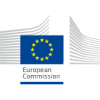
Healthy Citizens 2.0 - Supporting digital empowerment and health literacy of citizens
Deadline: Sep 21, 2021
CALL EXPIRED
CALL EXPIRED
Fisheries and Food
Entrepreneurship and SMEs
Innovation
Social Innovation
Environment
Health Care
Gender Equality
Aerospace Technology
Education and Training
Research
This topic aims at supporting activities that are enabling or contributing to one or several impacts of destination 1 “Staying healthy in a rapidly changing society”. To that end, proposals under this topic should aim for delivering results that are directed, tailored towards and contributing to all of the following expected outcomes:
- European citizens are educated, motivated and empowered to use digital tools for monitoring and managing their own physical, mental and social health and well-being. As a result, they take on a more active role in achieving their health potential and in adopting healthy lifestyles at home, in the community and at work, and they also interact better with their doctors and carers (receiving and providing feedback). Citizens are more health literate, are more autonomous and active, participate more in social life, have better employment opportunities, take on a more active role in achieving their health potential and in turn have a higher quality of life.
- Member States actively contribute to health literacy efforts, monitor and evaluate them.
- Health care and social services are better integrated, affordable, open to diversity and inclusion: they comply with precautionary protections concerning sensitive health data, consider the needs of end users (citizens, formal and informal carers) and innovation carriers (SMEs, hospitals) and favour tools of social innovation.
- Health promotion and disease prevention are enhanced by the awareness of healthier lifestyle behaviours, and overall there are better health outcomes throughout the life-course. There is a greater involvement of non-health sectors (including environment, food, safety and occupational health) and this has a direct impact on the determinants of health. Overall, there is a boost in the transition from treatment to prevention and this contributes to the reengineering of prevention into health care.
Digital technologies are a driving force for empowering citizens in taking on an active role in the management of their own health and well-being as well as for supporting innovations for coordinated person-centred care models.
There is a growing body of evidence demonstrating the value of digital health interventions and solutions for health promotion, disease prevention and treatment. However, in parallel, it is vital to ensure that online-based patient-centred programmes do not leave behind the very people they are primarily designed to empower. Moreover, citizen’s digital health literacy is essential for the successful transformation of health care systems.
Accordingly, the proposed activities should address all of the following:
- Map health literacy research in the EU (and beyond).
- Develop a comprehensive and inclusive European strategy in improving (digital) health literacy for the benefit of all citizens focusing on health promotion, disease prevention, treatment and (self-)care as well as on monitoring its impact on the quality of life, wellbeing, productivity and the economy, taking into account geographic, social and economic determinants of inequities in digital health literacy.
- Help patients navigate the health care systems, interact with their doctors and carers as well as better manage their own health at home, in the community and at work.
- Create a network of champions in digital health literacy across the EU (and beyond) to foster exchange and uptake of best practices.
- Set concrete targets as well as areas for improvement on health literacy levels across Europe.
- Develop monitoring mechanisms and indicators to assess health literacy levels and their evolution across Member States.
- Include stakeholders from all relevant sectors (including but not limited to education, innovation, health care, Medtech, media) and involve also citizens in the co-creation, design, planning, implementation and evaluation of the strategy, including through social innovation tools and approaches.
In all instances, gender as well as demographic, geographic and socio-economic aspects should be duly taken into account.
Cross-cutting Priorities:Socio-economic science and humanities
Social Innovation
EOSC and FAIR data
Public link: Only for registered users
Get Access to the 1st Network for European Cooperation
Log In
or
Create an account
to see this content
1
Up2Europe Experts
on This Call
Freelance EU funding analyst and consultant - Focused primarily on EU Direct Management Programmes, in particular H2020, Eras ...


 EC - Horizon Europe
EC - Horizon Europe
Please Log In to See This Section